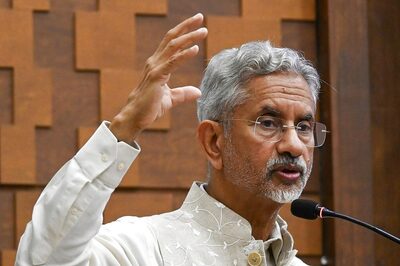
views
The University of Hull has invited applications for MSc Health and Climate Change course. The course enables students to research the scope of climate change and analyse its potential effects on various health issues, such as cardiorespiratory disease, vector-borne diseases, infections, immunity, nutrition, and health inequalities said the release.
University is now accepting applications for International applicants for this one-year, full-time master’s program for September 2024-25. The international student’s enrollment will begin from beginning of October 2023 and it will remain open until the end of June 2024.
Eligibility criteria
• Minimum of a 2:2 honours degree or international equivalent in a programme related to health sciences, for example, health sciences, medicine, public health, biomedical science and biomedical sciences.
• Some (paid or unpaid) experience in a health setting, for example, in a healthcare provider, a public health department in local, regional or national authorities, a clinical setting, a pharmacy, a vaccination centre, ambulance services, a clinical or (bio)medical research laboratory, a national health system, a public health data/bioinformatics analysis group, a (bio)medical charity.
• Professional experience will be considered on a case-by-case basis.
As claimed by the University, the course is designed to prepare current and future health leaders to meet these challenges head-on. It delves into the effects of climate change on human health and examines methods for lessening its impact and adjusting to it, focusing on public health stated the press release from University of Hull.
MSc in Health and Climate Change graduates can pursue various careers in the environmental and human health fields. They can conduct research in universities, work in international organizations, work in local and regional authorities, and contribute to mitigation and adaptation policies. Students can work with international organisations leading public health and climate change responses, such as the UN and the WHO.
They can also work in businesses that comply with environmental and health policies and regulations, and in national organizations like the Environment Agency, NHS, Public Health England, DEFRA, UK Health Alliance on Climate Change, and charities
“Climate change is the biggest health threat of the 21st Century. It can be the greatest health opportunity of this Century. As tackling climate change will be tackling the root causes of many of the health inequalities we see as pervasive in our world.” Dr. Pedro Beltran-Alvarez, co-Director of MSc Health and Climate Change.




















Comments
0 comment